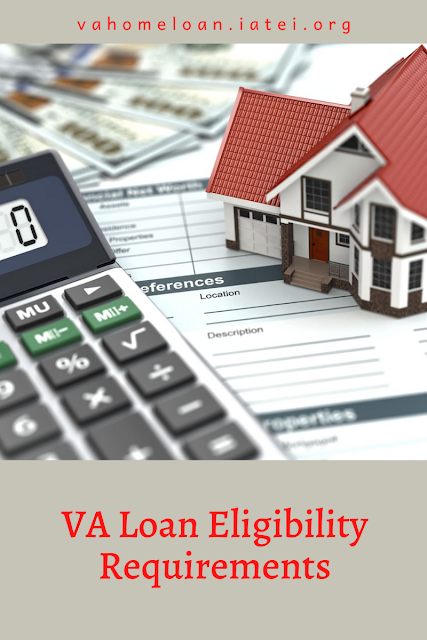Comparing VA Loans to Conventional Loans

For by far most of military
borrowers, VA credits are the most remarkable and financially savvy contract
program available.
These administration upheld
credits accompany noteworthy budgetary advantages for qualified borrowers,
incorporating buying with no cash down and no cash-based expenses.
In any case, there are positively
times, when a VA credit isn't the best answer and a typical mortgage, might be a
superior alternative. Here we separate the distinction between the VA credit
and typical mortgages and when one alternative might be more ideal than the
other.
VA Loans versus Conventional Loans
Typical mortgages highlight no
administration certifications and stick to the principles and prerequisites of
government-supported endeavors Fannie Mae and Freddie Mac.
Credit benchmarks can change by
moneylender and advance sort. A 660 FICO score is a typical benchmark for
standard mortgages, in spite of the fact that you may require an a lot higher
score to battle for the best rates and terms.
Different contrasts include:
Up Front Installment
A lead advantage of the VA
advance is that most VA borrowers needn't bother with an up front installment
to make sure about financing.
On the other hand, typical
mortgages regularly require an upfront installment of in any event 5 percent
(now and again it may be 3 percent or lower). In any case, traditional
borrowers with under 20 percent down will pay private home loan protection
(PMI) – a charge that isn't required with VA advances.
To place that in context, a 5
percent upfront installment on a $300,000 advance is $15,000. Borrowers would
normally need to put down $60,000 on that credit to abstain from paying PMI.
Home Loan Insurance
As recently referenced, standard
mortgages with under 20% down will require private home loan protection (PMI).
Contingent upon home value, your FICO rating and different variables, PMI can
without much of a stretch run $150 to $200 every month.
PMI ensures the bank in the event
that you default on your advance and regularly tumbles off after you arrive at
80% advance to-esteem.
VA credits don't require PMI,
sparing the borrower thousands over the life of the advance.
Rates
VA credit rates are regularly the
most minimal rates available. As indicated by the home loan start programming
firm Ellie Mae, through Q3 of 2019, VA credits have had the most minimal normal
rates at 4.27 percent – contrasted with customary at 4.5 percent.
VA advances are supported by the
Department of Veterans Affairs, giving banks the certainty to stretch out
increasingly good rates to borrowers who might not have impeccable credit.
Credit Standards
The Department of Veterans
Affairs (VA) doesn't set a FICO rating least on VA credits, however most
moneylenders do. Like standard mortgages, a few loan specialists like to see a
660 or better home loan financial assessment.
Additionally through Q3 of 2019,
the normal FICO rating for a VA buy advance was 709 contrasted with ordinary at
753 – demonstrating you needn't bother with ideal credit to acquire an ideal VA
advance rate.
Inhabitance Requirements
A fairly huge contrast among VA
and standard mortgages is that VA advances are just for main living places.
This doesn't preclude duplexes or fourplexes, however, to utilize a VA credit
you should plan to live in the property you buy.
In any case, typical mortgages
might be utilized to buy main living places, summer homes, investment property
and other venture property.
Credit Fees
VA credits accompany what's known
as the VA subsidizing expense. The VA subsidizing charge ranges from 1.4 to 3.6
percent and is applied to each VA buy and renegotiate advance.
The VA financing charge is
frequently folded into the whole credit add up to make for a genuine $0-down
advance.
Advantages of VA Loans versus Conventional Loans
The essential advantages of VA
advances are $0 cash down, no PMI, adaptable credit necessities and
exceptionally serious rates.
The VA advance may be a solid
match for qualified veterans and administration individuals without sterling
credit or the capacity to make a 20 percent initial installment.
On the other hand, borrowers with
extraordinary credit and enough money close by for an enormous up front
installment may locate that a typical mortgage is a superior fit.



Comments
Post a Comment